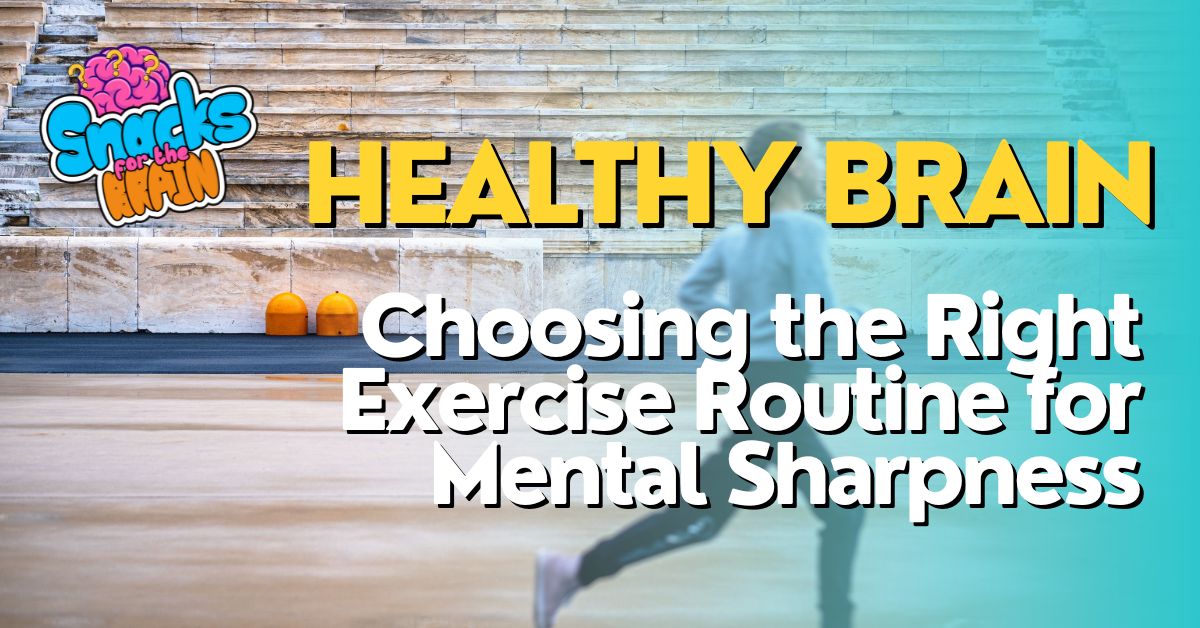Mindfulness has become increasingly popular in recent years as people seek ways to reduce stress and improve their overall well-being. In a fast-paced and constantly connected world, mindfulness offers a way to slow down, be present, and cultivate a sense of calm and clarity. This article will explore the importance of mindfulness in reducing stress and improving overall well-being.
Key Takeaways
- Mindfulness is a tool that can help reduce stress and anxiety.
- Practicing mindfulness can improve brain health and cognitive functioning.
- Mindfulness techniques can be used to manage stress and anxiety.
- The science behind mindfulness shows its positive effects on the brain.
- Mindfulness-based stress reduction programs can be helpful for those looking to reduce stress and anxiety.
Understanding Mindfulness as a Tool for Stress Reduction
Mindfulness can be defined as the practice of intentionally paying attention to the present moment without judgment. It involves bringing awareness to our thoughts, feelings, bodily sensations, and the surrounding environment. By practicing mindfulness, we can become more aware of our thoughts and emotions, and learn to respond to them in a non-reactive and non-judgmental way.
One of the key benefits of mindfulness is its ability to reduce stress. When we are mindful, we are able to observe our thoughts and emotions without getting caught up in them. This allows us to create space between ourselves and our stressors, giving us the opportunity to respond in a more calm and rational manner. By practicing mindfulness regularly, we can develop a greater sense of resilience and equanimity in the face of stress.
The Benefits of Mindfulness for Brain Health and Function
In addition to reducing stress, mindfulness has been shown to have numerous benefits for brain health and function. Research has found that regular mindfulness practice can lead to structural changes in the brain, including increased gray matter density in areas associated with attention, memory, and emotional regulation.
Furthermore, mindfulness has been found to improve cognitive function. Studies have shown that mindfulness can enhance working memory, attentional control, and cognitive flexibility. By training our minds to be more focused and present, we can improve our ability to concentrate, make decisions, and solve problems.
Maintaining brain health is crucial for overall well-being, as it affects our cognitive abilities, emotional regulation, and overall quality of life. By incorporating mindfulness into our daily lives, we can support our brain health and function.
How Mindfulness Can Help Improve Cognitive Functioning
Mindfulness can improve cognitive functioning in several ways. Firstly, by practicing mindfulness, we can enhance our ability to sustain attention. In a world filled with distractions, being able to focus on the task at hand is essential for productivity and efficiency. Mindfulness helps us train our minds to stay present and resist the urge to get caught up in distractions.
Secondly, mindfulness can improve working memory, which is the ability to hold and manipulate information in our minds over short periods of time. By practicing mindfulness, we can strengthen our working memory capacity, allowing us to better retain and process information.
Lastly, mindfulness can enhance cognitive flexibility, which is the ability to switch between different tasks or perspectives. By cultivating a non-judgmental and open-minded attitude through mindfulness, we can become more adaptable and open to new ideas and experiences.
Mindfulness Techniques for Managing Stress and Anxiety
There are various mindfulness techniques that can be used to manage stress and anxiety. One popular technique is mindful breathing, which involves focusing on the sensation of the breath as it enters and leaves the body. This simple practice can help bring us back to the present moment and calm our racing thoughts.
Another technique is body scan meditation, where we systematically bring awareness to different parts of the body, noticing any sensations or tension that may be present. This practice can help us become more attuned to our bodies and release any physical tension or discomfort.
Mindful walking is another effective technique for managing stress and anxiety. By bringing awareness to each step we take, noticing the sensation of our feet touching the ground, we can ground ourselves in the present moment and find a sense of calm.
It is important to note that mindfulness is not limited to formal meditation practices. We can also incorporate mindfulness into our daily lives by bringing awareness to everyday activities such as eating, brushing our teeth, or even washing the dishes. By fully engaging in these activities and paying attention to the sensations and movements involved, we can cultivate a sense of mindfulness and reduce stress and anxiety.
The Science Behind Mindfulness and Its Effect on the Brain

The science behind mindfulness lies in its ability to activate certain areas of the brain that are responsible for attention, emotional regulation, and self-awareness. When we practice mindfulness, the prefrontal cortex, which is involved in executive functions such as decision-making and problem-solving, becomes more active. This leads to improved cognitive function and decision-making abilities.
Additionally, mindfulness has been found to activate the insula, which is responsible for interoception – the ability to perceive bodily sensations. By bringing awareness to our bodily sensations through mindfulness, we can better understand and regulate our emotions.
Furthermore, mindfulness has been shown to reduce activity in the amygdala, which is responsible for the fight-or-flight response. By calming down the amygdala through mindfulness, we can reduce stress and anxiety.
Understanding the science behind mindfulness can help us appreciate its effectiveness as a tool for reducing stress and improving overall well-being.
Mindfulness-Based Stress Reduction Programs: What You Need to Know
Mindfulness-based stress reduction (MBSR) programs are structured programs that teach individuals how to incorporate mindfulness into their daily lives. These programs typically involve a combination of formal meditation practices, such as mindful breathing and body scan meditation, as well as informal practices that encourage mindfulness in everyday activities.
Participating in MBSR programs has been found to have numerous benefits. Research has shown that MBSR can reduce symptoms of stress, anxiety, and depression, improve sleep quality, enhance cognitive function, and increase overall well-being.
MBSR programs typically involve weekly group sessions led by a trained facilitator, as well as daily home practice. By participating in these programs, individuals can learn how to cultivate mindfulness and integrate it into their daily lives, leading to long-term benefits for their mental health and well-being.
Mindfulness and Emotional Regulation: Finding Peace in the Present Moment
One of the key benefits of mindfulness is its ability to help regulate emotions. By practicing mindfulness, we can become more aware of our emotions as they arise, and learn to respond to them in a non-reactive and non-judgmental way.
When we are mindful, we can observe our emotions without getting caught up in them. This allows us to create space between ourselves and our emotions, giving us the opportunity to choose how we want to respond. Instead of reacting impulsively or getting overwhelmed by our emotions, we can respond with greater clarity and compassion.
Mindfulness can also help us find peace in the present moment. By bringing awareness to our thoughts, feelings, and bodily sensations, we can anchor ourselves in the present moment and let go of worries about the past or future. This can bring a sense of calm and tranquility, even in the midst of challenging circumstances.
Mindfulness and Sleep: How Practicing Mindfulness Can Improve Sleep Quality
Sleep is essential for our overall well-being, yet many people struggle with sleep problems such as insomnia or poor sleep quality. Mindfulness can be a powerful tool for improving sleep.
By practicing mindfulness before bed, we can calm our minds and relax our bodies, making it easier to fall asleep and stay asleep throughout the night. Mindful breathing or body scan meditation can be particularly helpful for promoting relaxation and preparing the mind and body for sleep.
Mindfulness can also help reduce racing thoughts or worries that often keep us awake at night. By bringing awareness to these thoughts without judgment, we can create distance from them and let them go, allowing us to drift off into a peaceful sleep.
Furthermore, mindfulness can help us become more attuned to our bodies and recognize any physical discomfort or tension that may be interfering with sleep. By bringing awareness to these sensations, we can take steps to address them and create a more conducive environment for sleep.
Mindfulness and Workplace Productivity: How Mindfulness Can Boost Your Performance
In today’s fast-paced and demanding work environments, mindfulness can be a valuable tool for boosting workplace productivity. By practicing mindfulness, we can enhance our ability to focus, make decisions, and manage our time effectively.
Mindfulness helps us train our minds to stay present and resist the urge to get caught up in distractions. This can be particularly beneficial in the workplace, where there are often numerous competing demands for our attention. By staying focused on the task at hand, we can work more efficiently and produce higher quality work.
Furthermore, mindfulness can improve our ability to make decisions by helping us become more aware of our thoughts and emotions. By observing our thoughts without judgment, we can gain clarity and make decisions that are aligned with our values and goals.
Additionally, mindfulness can help us manage stress in the workplace. By bringing awareness to our stressors and responding to them in a non-reactive and non-judgmental way, we can reduce stress and prevent burnout. This can lead to increased job satisfaction and overall well-being.
Mindfulness and Self-Care: Prioritizing Your Mental Health and Well-Being
Self-care is essential for maintaining good mental health and overall well-being. Mindfulness can play a crucial role in self-care by helping us prioritize our mental health and well-being.
By practicing mindfulness, we can become more attuned to our needs and take proactive steps to meet them. This may involve setting boundaries, saying no to activities or commitments that drain us, or engaging in activities that bring us joy and relaxation.
Mindfulness also helps us cultivate self-compassion, which is the ability to treat ourselves with kindness and understanding. By observing our thoughts and emotions without judgment, we can develop a greater sense of self-acceptance and compassion. This can be particularly helpful during times of stress or difficulty, when we may be more prone to self-criticism or negative self-talk.
Furthermore, mindfulness can help us manage our energy levels and prevent burnout. By bringing awareness to our physical and emotional state, we can recognize when we need to rest or recharge, and take the necessary steps to prioritize our well-being.
In conclusion, mindfulness is a powerful tool for reducing stress and improving overall well-being. By practicing mindfulness, we can cultivate a greater sense of calm, clarity, and resilience in the face of stressors. Mindfulness has numerous benefits for brain health and function, including improved cognitive function and emotional regulation.
There are various mindfulness techniques that can be used to manage stress and anxiety, such as mindful breathing, body scan meditation, and mindful walking. Participating in mindfulness-based stress reduction programs can also provide structured guidance and support for incorporating mindfulness into daily life.
Mindfulness can improve sleep quality, boost workplace productivity, and support self-care by helping us prioritize our mental health and well-being. By practicing mindfulness regularly, we can experience the transformative effects of this powerful practice in our lives. So why not start incorporating mindfulness into your daily routine today?
If you’re interested in exploring more about the benefits of mindfulness and its impact on brain function, you might find the article «7 Tips to Improve Your Memory» from Intelligence Snacks & Hacks intriguing. This article delves into practical strategies to enhance memory and cognitive abilities, which can be further enhanced by incorporating mindfulness practices. Discover how mindfulness can reduce stress, improve brain function, and boost your overall cognitive performance by checking out this informative piece. Read more here.
FAQs
What is mindfulness?
Mindfulness is the practice of being present and fully engaged in the current moment, without judgment or distraction.
How does mindfulness reduce stress?
Mindfulness reduces stress by helping individuals become more aware of their thoughts and emotions, and learning to respond to them in a non-judgmental way. This can lead to a decrease in stress and anxiety.
What are the benefits of mindfulness?
The benefits of mindfulness include reduced stress and anxiety, improved focus and concentration, increased self-awareness, and improved overall well-being.
How does mindfulness improve brain function?
Mindfulness has been shown to improve brain function by increasing activity in the prefrontal cortex, which is responsible for decision-making, attention, and self-control. It also decreases activity in the amygdala, which is responsible for the fight or flight response.
How can I practice mindfulness?
There are many ways to practice mindfulness, including meditation, deep breathing exercises, and mindful movement practices such as yoga or tai chi. It can also be practiced in everyday activities such as eating or walking.






